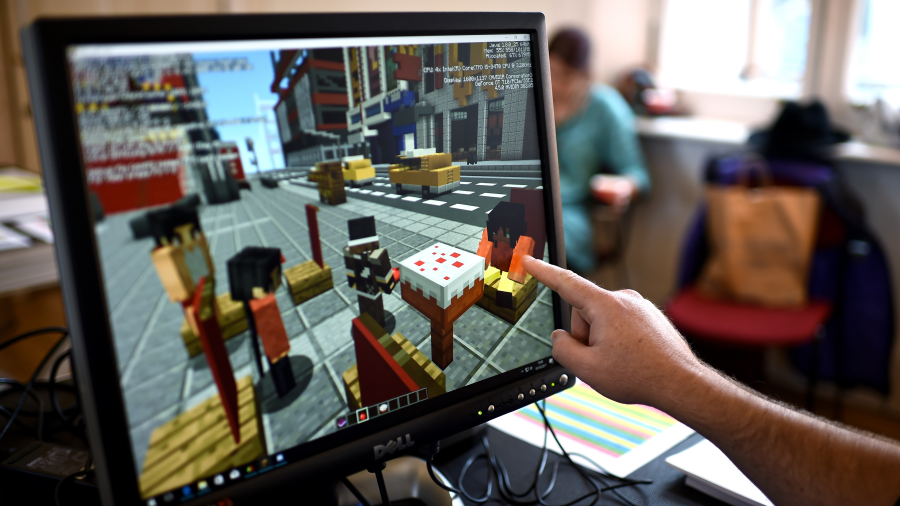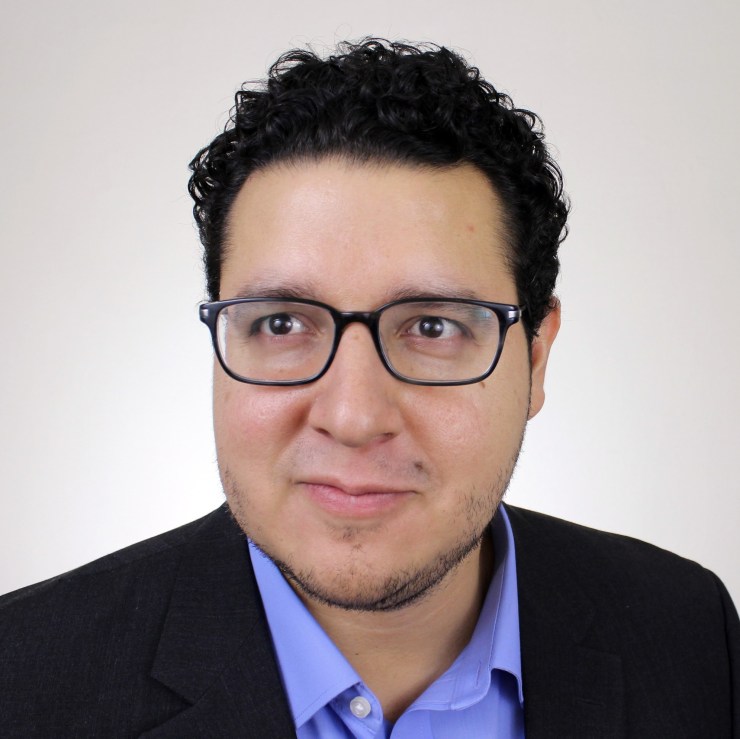Mental health pros are using video games to level up therapy

For decades, mental health professionals have been using toys and games to engage patients during psychotherapy. During the pandemic, that was a lot harder as therapy went remote. So some therapists are ditching analog games like Candy Land for world-building online games like Roblox or Minecraft.
Geek Therapy is a nonprofit organization that advocates for video games to be used in therapy, and Josué Cardona is the group’s president. He said that since lots of people are gaming anyway, it’s only logical that it shows up in therapy. The following is an edited transcript of our conversation.
Josué Cardona: I think the toys that people are playing with are changing. So, the Association [for] Play Therapy has these very core principles, therapeutic powers of play, and they apply to video games the same. And video games are so popular, it just makes sense that therapists would just start using them and clients would start asking to use them as well.
Kimberly Adams: So what sorts of mental health concerns do you tend to use this type of play therapy to address?
Cardona: The usual. Depression, anxiety, those are things that come up often. And, it’s so unique to each client, what they like to play, what they’re experiencing and how whatever they’re dealing with kind of comes up during the game. So, there’s some games that are very open-world, so you have the opportunity to travel anywhere you want to go and do whatever you want. And some clients, they struggle with that — they have a lot of anxiety about making decisions and playing a game that is so open-ended. It’s an experience that is contained and in a very safe space and an environment that then we can, we can kind of control different variables and address those concerns.

Adams: Are there any additional privacy concerns or [Health Insurance Portability and Accountability Act] considerations that you have to worry about when you do bring in video games into therapy?
Cardona: It’s interesting. A lot of therapists are very concerned about that. And the truth is that the answer is usually just use the tool that you already use for remote therapy, like Zoom, or any other HIPAA-compliant service, and then use that for communication.
Adams: I think many of us growing up were told by our parents that if we played too many video games, our brains would turn to mush. So how do you sell this idea of actually using gaming as therapy to parents or even to patients?
Cardona: Something that makes that a lot easier now is that a lot of us who had parents who told us that are parents now. And so we don’t necessarily tell our kids that, which makes it much, much easier to sell the idea of gaming within therapy. But some parents are resistant. And so I like to refer to the nearly 227 million players in the U.S.
Adams: But I’m also imagining that some people may balk at the idea of paying therapy rates for someone to play video games with their kid or themselves.
Cardona: Yeah, yeah, absolutely. I think we’re relying a lot on what’s happened already in the play-therapy world, which for decades, they’ve been using toys and games and sand tray [which uses figures and props to create a safe, imaginary world], and things like that. And so there’s a part of the population that is willing and accepting and, and open to doing that. It’s also interesting that a lot of kids are more willing to go to therapy, work with a counselor, if that is on the table than if not. So I’ve had parents say, “My son, I think it would benefit them a lot if they saw a therapist. They never want to go, or they go and they don’t want to keep going. But with you, they want to keep coming because you’re willing to not only talk to them about Minecraft, but also play the game in session.” It’s definitely opened a lot of doors for a lot of families to come into the mental health space.
Adams: I guess you have to be pretty good at Minecraft, though, so the kids don’t, like, make fun of you during the session.
Cardona: Nah. Sometimes you just pretend that you don’t know what you’re doing. The kids want to teach you, it’s better that way. They love to teach you and think that they know more than you.
Adams: The U.S. surgeon general just put out a 53-page advisory highlighting the crisis that is basically the mental health effects of the pandemic on youth in the U.S. What role do you think gaming therapy, or therapy that includes gaming, might play in addressing this?
Cardona: The fact that we are calling attention to youth mental health right now, right, in light of the pandemic, is so great. And I think that anything that attracts that age group is more willing and open to great opportunity for more therapy, and more therapeutic services to embrace that. Ten years ago, when I started Geek Therapy, my supervisor said, “Absolutely not — do not use video games.” And my argument was: That’s the language that the kids are speaking, so it makes sense to use that and embrace it. And it’s proven to be true. So that age group, those that like video games, let’s talk to them about video games. Those that like Taylor Swift, let’s talk to them about Taylor Swift — whatever gets them in the door.
Adams: You mentioned Minecraft. What other games do you find are particularly good for therapy that maybe people wouldn’t think of using as a therapeutic device?
Cardona: I think probably my favorite right now would be Fortnite. It is a very popular game that many people just assume is — 100 people dropped in an island and everybody’s just killing each other. But the game is not — I mean, nobody actually dies in the game. When someone loses their points, they get taken away by an alien ship and teleported, so it’s less violent. And in that sense, it’s very cartoony in its violence, but it also has many modes. So you can jump into a party mode, for example, or a creative mode and just create a space together. You can design different experiences for therapy or just to hang out and walk around, and [it’s] very similar to something like Minecraft.
Related links: More insight from Kimberly Adams
Wired has a detailed story on how the pandemic has helped push online gaming into the therapeutic mainstream, and it gets into research showing that in some cases, video games can be as effective or more effective than other mental health interventions.
We also have a link to that surgeon general’s advisory we mentioned.
Cardona’s group, Geek Therapy, has actually been doing this work for quite a while. The organization is celebrating its 10th anniversary this year. According to Cardona, geek therapy involves more than gaming. It includes things like comic books, Dungeons and Dragons, or my favorite, anime.
Cardona is also co-founder of the Let’s Play Therapy Institute, which trains mental health professionals to deploy some of these strategies in play therapy. The institute also has free trainings open to the general public, including how to use Animal Crossing, Roblox, Minecraft or Fortnite in play therapy.
But, remember to turn to a professional therapist if you or a loved one need support.
The future of this podcast starts with you.
Every day, the “Marketplace Tech” team demystifies the digital economy with stories that explore more than just Big Tech. We’re committed to covering topics that matter to you and the world around us, diving deep into how technology intersects with climate change, inequity, and disinformation.
As part of a nonprofit newsroom, we’re counting on listeners like you to keep this public service paywall-free and available to all.
Support “Marketplace Tech” in any amount today and become a partner in our mission.


















